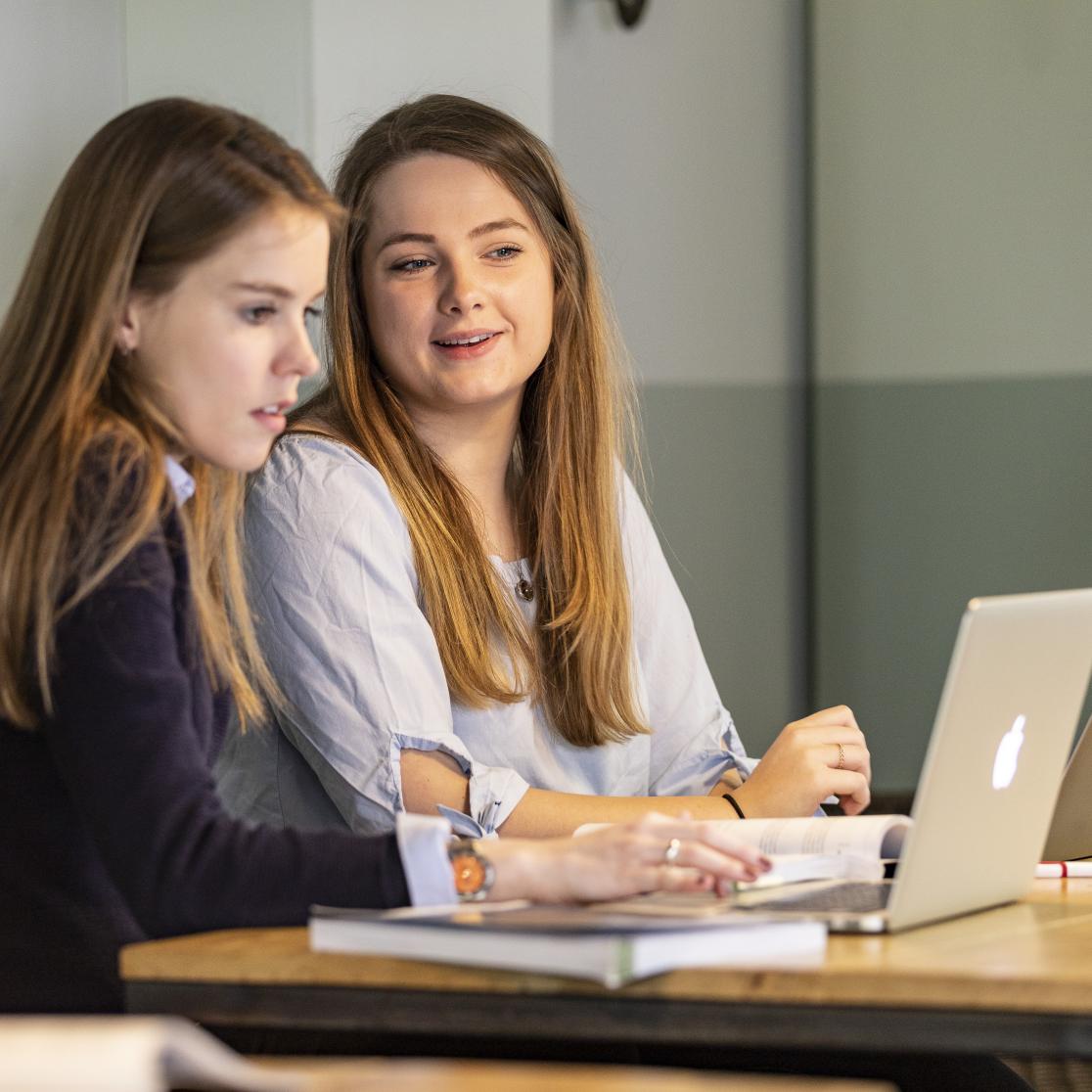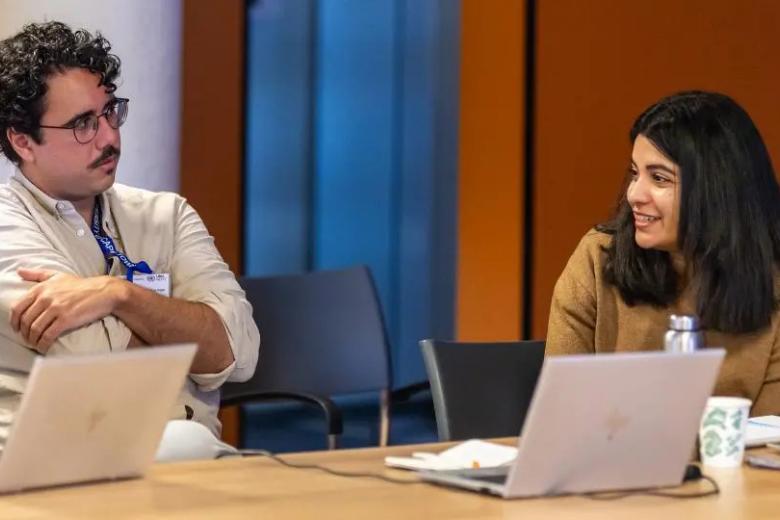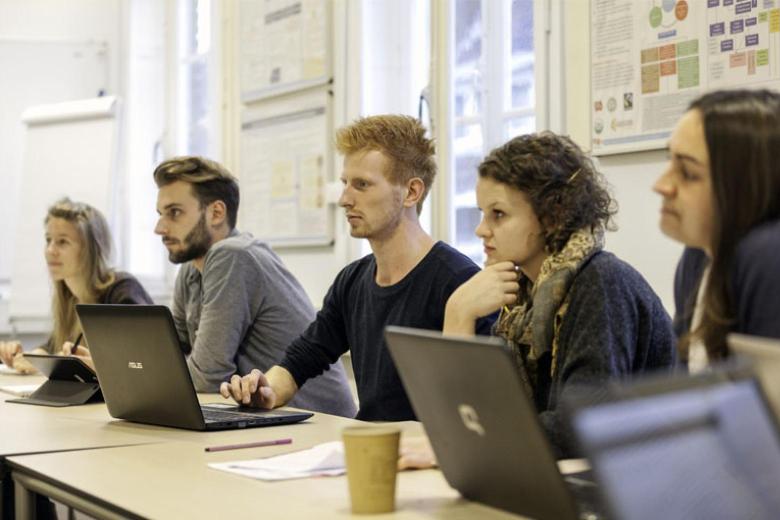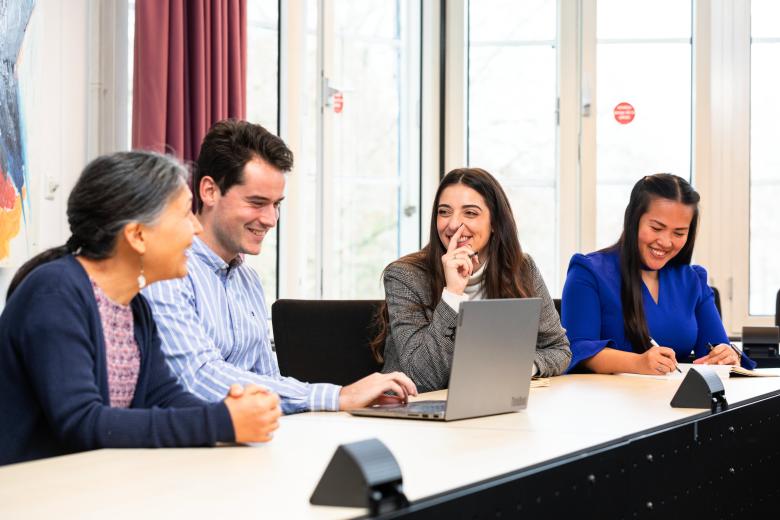Every day, 18,000 students, almost 4,500 employees and a few hundred visitors expect the UM campus to have Wi-Fi. What makes this possible? 'It involves more than just wiring up a few connection points and cables,' says Marc. 'In addition to the fixed pieces of the puzzle and constantly monitoring the network, we often resolve faults proactively, i.e. before they start to bother users. In any case, together with my colleagues John Klinkenberg and Daniel Rienties, we work hard every day to keep the chance of mist to a minimum.'
Mist? From the movie ‘Gorillas in the mist’?
Marc explains that the higher the number of people using Wi-Fi on their devices in a small area, the greater the chance of ‘mist’. 'The thicker the mist, the worse the visibility. That doesn’t just apply on the road, but also to Wi-Fi.' Our services are dependent on the devices that are used. Marc explains that, when a greater number of different devices is used, the Wi-Fi service becomes more complex and the chance of mist increases as a result. Makes sense, doesn't it?
What if the Wi-Fi ever fails completely?
'Thankfully, that’s never happened,' says Marc. 'UM’s Wi-Fi network is robust and has sufficient backups. Fortunately, the entire Wi-Fi network has never failed in all these years.' This is also because UM employees provide a helping hand: 'It helps that people tell us about major office relocations in good time, for example. Things like that definitely affect the Wi-Fi network.'
So how do you achieve a perfect Wi-Fi network?
Marc: 'Unfortunately, there isn’t a one-size-fits-all manual, but many people underestimate the importance of updating their devices. If you regularly update your smartphone, laptop or tablet, you will keep all your functionalities up to date and therefore also your Wi-Fi. Of course, it doesn't help if your devices are outdated, either,' Marc grins. What about your personal situation at home?
Does your own Wi-Fi work without a hitch?
'It does. It has to, with four women in the house! And if colleagues or family and friends have problems with their Wi-Fi, I help them out on a regular basis as well. I'm not like a chef who never cooks at home,' he concludes with a smile.




